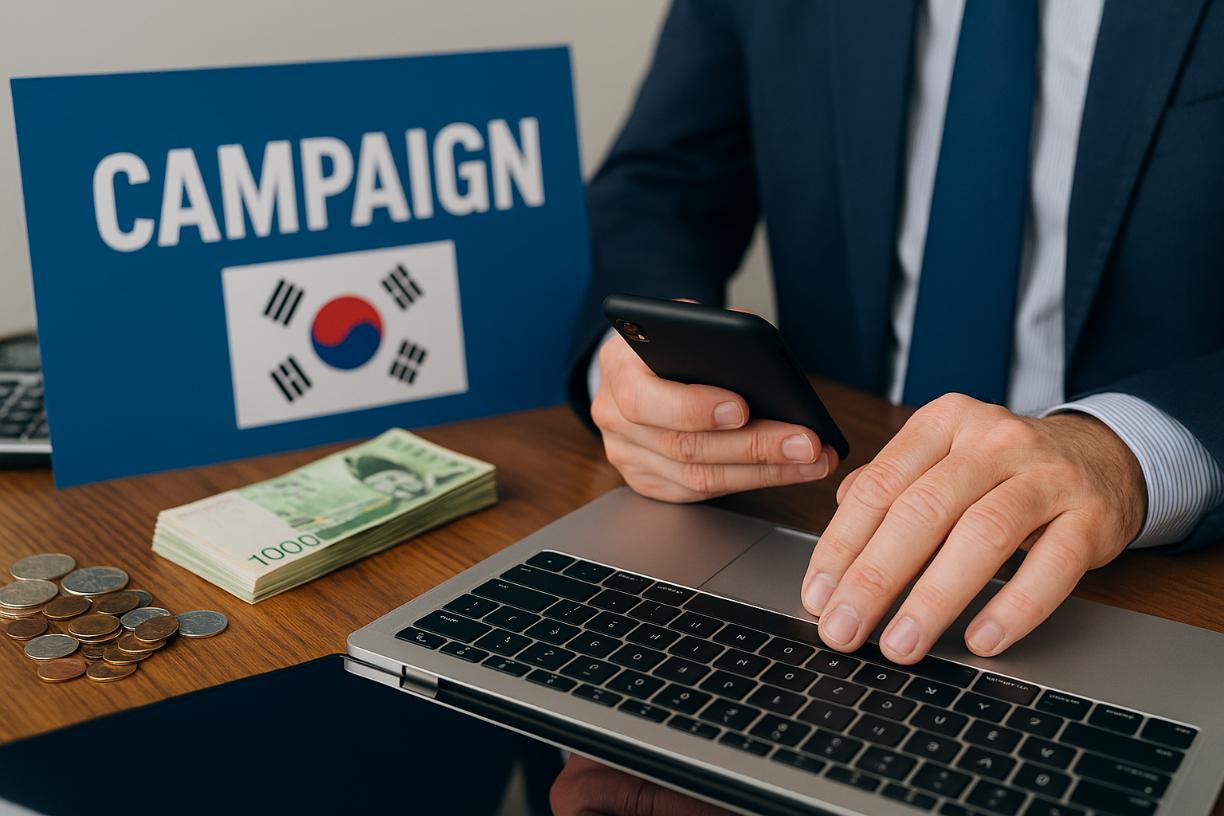
The advent of digital cashing systems marks an important milestone in political campaign financing in Korea.
These systems allow the conversion of digital assets and micropayments into cash, creating new challenges and opportunities for contribution, transparency, and fundraising mechanisms. It is clear that digital cashing is an integral constituent of political finance in our times.
The following outlines 5 important ways through which these systems alter the political campaign finance landscape in Korea.
1. Enhanced Civic Participation in Funding
Traditional campaign financing is limited to bank transactions, requiring in-person donations, which can be very taxing for micro donors.
Digital cashing systems enable political funding through prepaid cards, mobile wallets, or even small payment balances, which is a simpler method.
This ease of funding contributes to wider public engagement. Political financing is no longer restricted to the privileged.
2. Methods for Concealed and Undisclosed Sponsorships
Unknown sponsorships can include funds from foreign sources, which can be fatal to a country’s political existence.
While cashless transactions are important in political funding, these services can pose a concern relating to unanonymous transactions.
This gap makes it easy for politicians and associates to spend money without drawing any regulatory scrutiny. The opportunity leads to unregulated and unchecked money, leading to corruption in elections.
These are just a few of the potential risks of corruption for election campaigns without proper measures and capture regulations in place.
3. Fundraising from the Public for Political Activities
Through the use of crowdfunding sites combined with digital payments, political candidates as well as political activists can collect funds in an organized manner.
Supporters can transfer payments from different sources like loyalty point systems, online bank accounts, and other digital portfolios to back their political interests or agendas.
This is very useful for independent candidates and grassroots movements that severely lack funding.
ALSO READ: 10 Ways Taragon Opulon AI Can Predict Market Movements During Election Seasons
4. Technology Companies Intervening in Politics
The growth of technological payment systems widens the hands of political funders to indirectly control politics through the companies that own these systems.
Managing the campaign’s resources by controlling transaction charges and setting limits like caps on payments, or even cancelling payments altogether, enables the manipulation of support funding for specific political candidates.
Their involvement may introduce biases or external influences on election outcomes.
5. Other Controversial Areas that Require Legislative Attention
As the need for political monitoring increases due to the acceleration of digitized payment systems, governing bodies make an effort to balance transparency alongside centralized control.
Authorities must change the bounds of financial disclosure laws to reflect new implementations associated with money flows to mitigate loopholes associated with disguised illegal campaign donation schemes.
Too much leniency due to arising shifts in technology can disturb the integrity of democracy.
Conclusion
In South Korea, elections and political campaign financing are being transformed by electronic payment systems, as these make donations simpler but additionally create new concerns regarding transparency and governance.
As with other forms of technology, electronic payments increase participation and streamline processes, but at the same time, they require stricter controls to avoid abuse.
As policymakers work towards the objectives of ensuring responsible governance and appropriate regulation, the rapid advancement of digital finance poses challenges that will have to be promptly dealt with in order to protect the political funding framework in Korea.


